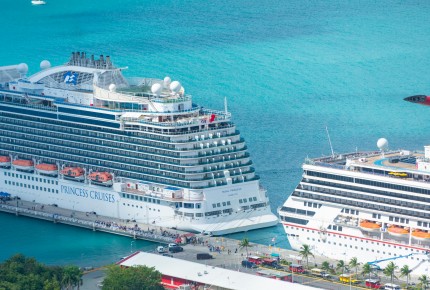Copyright © 2026 lmitac.com All Rights Reserved. Contact - Terms and Conditions - Privacy Policy - Quality Policy - Become an instructor - Vacancies - Sitemap
London Maritime Academy is a trade name for London Premier Groupversion: 2.9.0
London Maritime Academy is a trade name for London Premier Group

Posted On: 4/25/2025, 9:56:30 PM
Last Update: 5/6/2025, 10:09:20 PM
The U.S. government has announced that Tropical Shipping will be exempt from proposed tariffs on Chinese-built vessels, protecting the Caribbean's crucial maritime trade lifelines and avoiding significant expenses and trade issues.
Evidently, the U.S. Trade Representative (USTR) affirmed on April 17 that the high port fees will not impact vessels that operate in the Caribbean, including those that service U.S. territories.
A Vital Relief for the Caribbean Private Sector
After months of lobbying by private sector organisations, shipping companies, and regional leaders, this finally happened. Notably, the 15-member CARICOM's Caribbean Private Sector Organisation (CPSO) hailed the news as a much-needed respite.
They had previously issued a warning that the proposed tariffs would have resulted in increased costs, shipping hold-ups, and supply problems throughout the region.
Moreover, a cost increase of roughly $3,000 per 40-foot container, which the USTR had attempted to impose, would
have seriously jeopardised the affordability and accessibility of shipping for Tropical's clients.
Under a 2023 investigation, the United States had suggested these tariffs as a means of retaliating against China's hegemony in the world's shipbuilding industry.
Besides, the fees, which ranged from $500,000 to more than $1 million per visit, were designed to promote the use of ships built in the United States. But in the Caribbean, where a lot of shipping lines use mid-sized, Chinese-built ships, this action caused concern.
Shipping Training Courses in Dubai give students the chance to learn about the wider shipping sector while also gaining an in-depth understanding of key topics like the Foundation Diploma in Shipping, Boatyard and Marina Operations and Marine Pilotage.

Harmonising Regional Economic Realities
With direct appeals to U.S. officials, including Secretary of State Marco Rubio and even President Donald Trump, leaders such as Barbados Prime Minister Mia Mottley and Darwin Telemaque, CEO of Antigua's Port, were instrumental in obtaining the exemption.
In addition, the campaign's technical work was spearheaded by CPSO Chairman Dr. Patrick Antoine and his group. Their testimony and research contributed to demonstrating the harm that the tariffs would have caused to small island economies.
Additionally, the U.S. granted important exemptions requested by Caribbean leaders:
Other organisations that received recognition for their contributions included Massy, Grace Kennedy, the Caribbean Shipping Association, Tropical Shipping, and U.S. Congresswoman Stacey Plaskett.
Furthermore, by taking into account the pragmatic realities of current trade partnerships and regional sensitivities, the U.S. government's measured approach strikes a balance between the strategic imperative of opposing China's maritime dominance and promoting the expansion of American industry.
Now, Caribbean countries can rest easy knowing that the policies in place will not interfere with their vital shipping routes. However, as new regulations and tariffs are implemented over the next few years, caution will still be crucial.
Read more news: